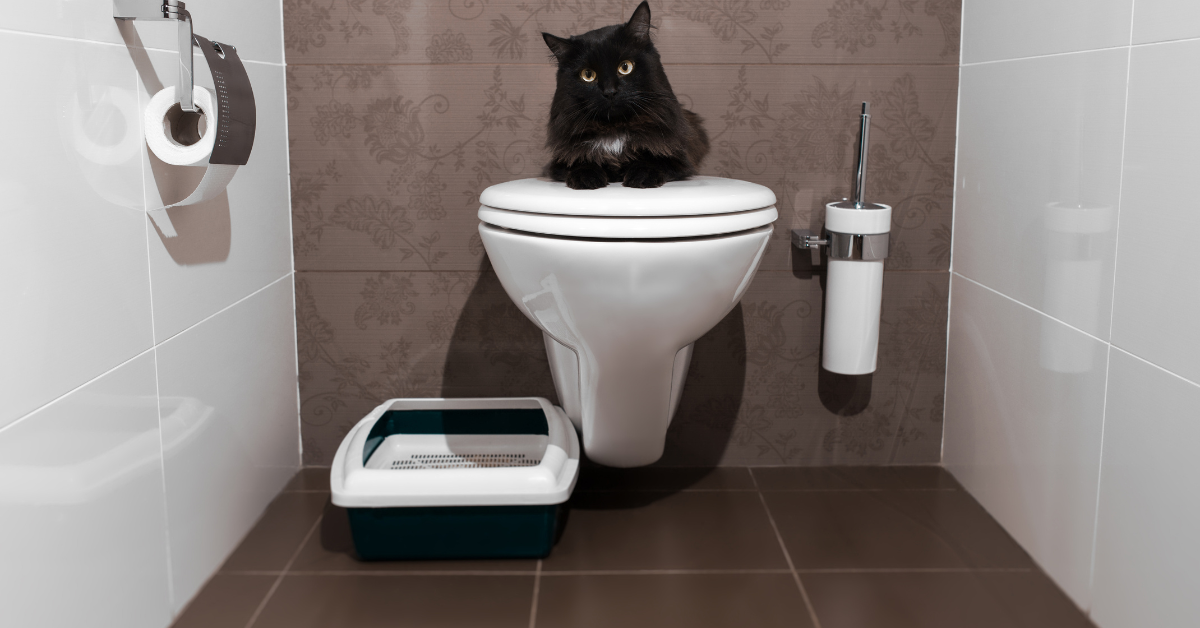This article below on the subject of How to Dispose of Cat Poop and Litter Without Plastic Bags is extremely compelling. Check it out for your own benefit and decide what you think of it.

Introduction
As feline proprietors, it's important to be mindful of how we throw away our feline close friends' waste. While it may seem practical to purge cat poop down the toilet, this practice can have damaging effects for both the setting and human health.
Alternatives to Flushing
Thankfully, there are much safer and much more accountable methods to take care of pet cat poop. Take into consideration the complying with alternatives:
1. Scoop and Dispose in Trash
The most common approach of dealing with pet cat poop is to scoop it right into a biodegradable bag and toss it in the trash. Be sure to make use of a committed trash scoop and take care of the waste immediately.
2. Use Biodegradable Litter
Choose eco-friendly cat clutter made from materials such as corn or wheat. These trashes are eco-friendly and can be safely taken care of in the trash.
3. Bury in the Yard
If you have a backyard, consider hiding cat waste in an assigned location away from vegetable yards and water resources. Make certain to dig deep enough to prevent contamination of groundwater.
4. Install a Pet Waste Disposal System
Invest in an animal waste disposal system specifically developed for cat waste. These systems make use of enzymes to break down the waste, lowering smell and environmental impact.
Wellness Risks
Along with environmental problems, flushing cat waste can also posture health risks to human beings. Feline feces may consist of Toxoplasma gondii, a bloodsucker that can trigger toxoplasmosis-- a possibly serious health problem, especially for expectant females and people with damaged body immune systems.
Ecological Impact
Flushing cat poop presents harmful virus and bloodsuckers into the water supply, posing a substantial danger to marine ecological communities. These pollutants can adversely impact aquatic life and compromise water top quality.
Conclusion
Liable family pet ownership expands past giving food and sanctuary-- it additionally entails correct waste administration. By refraining from purging pet cat poop down the commode and selecting alternate disposal methods, we can minimize our ecological footprint and secure human health and wellness.
Why You Should Never Flush Cat Poop Down the Toilet
A rose by any other name might smell as sweet, but not all poop is created equal. Toilets, and our sewage systems, are designed for human excrement, not animal waste. It might seem like it couldn’t hurt to toss cat feces into the loo, but it’s not a good idea to flush cat poop in the toilet.
First and foremost, assuming your cat uses a litter box, any waste is going to have litter on it. And even the smallest amount of litter can wreak havoc on plumbing.
Over time, small amounts build up, filling up your septic system. Most litter sold today is clumping; it is made from a type of clay that hardens when it gets wet. Ever tried to scrape old clumps from the bottom of a litter box? You know just how cement-hard it can get!
Now imagine just a small clump of that stuck in your pipes. A simple de-clogger like Drano isn’t going to cut it. And that means it’s going to cost you big time to fix it.
Parasitic Contamination
Believe it or not, your healthy kitty may be harboring a nasty parasite. Only cats excrete Toxoplasma in their feces. Yet it rarely causes serious health issues in the cats that are infected. Most people will be fine too if infected. Only pregnant women and people with compromised immune systems are at risk. (If you’ve ever heard how women who are expecting are excused from litter cleaning duty, Toxoplasma is why.)
But other animals may have a problem if infected with the parasite. And human water treatment systems aren’t designed to handle it. As a result, the systems don’t remove the parasite before discharging wastewater into local waterways. Fish, shellfish, and other marine life — otters in particular — are susceptible to toxoplasma. If exposed, most will end up with brain damage and many will die.
Depending on the species of fish, they may end up on someone’s fish hook and, ultimately on someone’s dinner plate. If that someone has a chronic illness, they’re at risk.
Skip the Toilet Training
We know there are folks out there who like to toilet train their cats. And we give them props, it takes a lot of work. But thanks to the toxoplasma, it’s not a good idea.

We had been shown that write-up on Don’t flush cat feces down the toilet through someone on a different domain. Make sure you take a moment to distribute this page if you enjoyed it. Thanks a lot for taking the time to read it.
Call Today